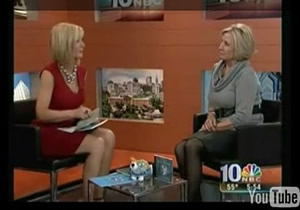Did you know that there are types of domestic violence and abuse which include emotional, physical, sexual, and economic abuse? Many abusers act in ways that include more than one type of domestic abuse. The following is an excerpt from, http://www.helpguide.org/mental/domestic_violence_abuse_types_signs_causes_effects.htm Please check the links on this web site for additional links if you think you might be in an abusive relationship.
Emotional or psychological abuse can be verbal or nonverbal. Its aim is to chip away at your feelings of self-worth and independence. If you’re the victim of emotional abuse, you may feel that there is no way out of the relationship, or that without your abusive partner you have nothing. Emotional abuse includes verbal abuse such as yelling, name-calling, blaming, and shaming. Isolation, intimidation, and controlling behavior also fall under emotional abuse. Additionally, abusers who use emotional or psychological abuse often throw in threats of physical violence.
You may think that physical abuse is far worse than emotional abuse, since physical violence can send you to the hospital and leave you with scars. But, the scars of emotional abuse are very real, and they run deep. In fact, emotional abuse can be just as damaging as physical abuse, sometimes even more so. Furthermore, emotional abuse usually worsens over time, often escalating to physical battery.
Physical abuse When people talk about domestic violence, they are often referring to the physical abuse of a spouse or intimate partner. Physical abuse is the use of physical force against someone in a way that injures or endangers that person. There’s a broad range of behaviors that come under the heading of physical abuse, including hitting, grabbing, choking, throwing things, and assault with a weapon.
Physical assault or battering is a crime, whether it occurs inside or outside of the family. The police have the power and authority to protect you from physical attack.
Sexual abuse is common in abusive relationships. According to the National Coalition Against Domestic Violence, between one-third and one-half of all battered women are raped by their partners at least once during their relationship. Any situation in which you are forced to participate in unwanted, unsafe, or degrading sexual activity is sexual abuse. Forced sex, even by a spouse or intimate partner with whom you also have consensual sex, is an act of aggression and violence. Furthermore, women whose partners abuse them physically and sexually are at a higher risk of being seriously injured or killed.
Economic or financial abuse Remember, an abuser’s goal is to control you, and he will frequently hurt you to do that. In addition to hurting you emotionally and physically, an abusive partner may also hurt you in the pocketbook. Economic of financial abuse includes:
- Controlling the finances.
- Withholding money or credit cards.
- Giving you an allowance.
- Making you account for every penny you spend.
- Stealing from you or taking your money.
- Exploiting your assets for personal gain.
- Withholding basic necessities (food, clothes, medications, shelter).
- Preventing you from working or choosing your own career.
- Sabotaging your job (making you miss work, calling constantly)

